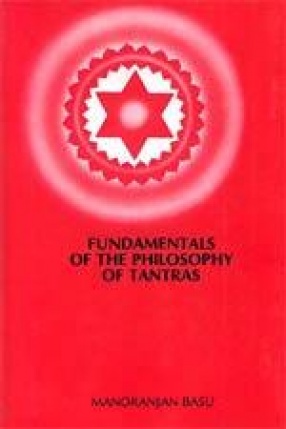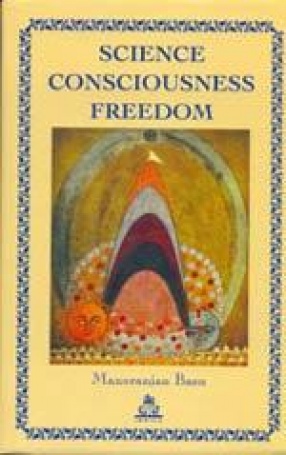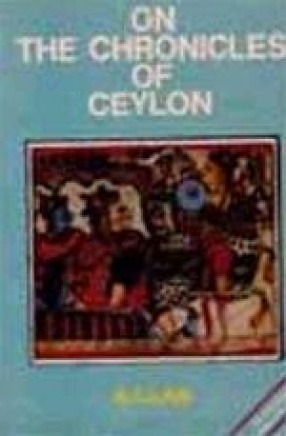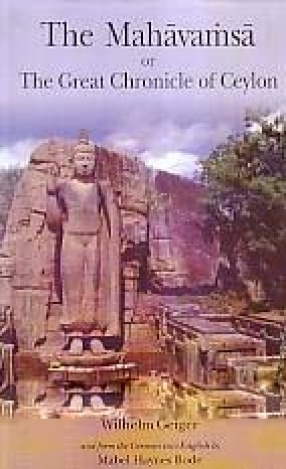The volume is divided into two parts. Part one consists of four chapters dealing with the basic concepts of the philosophy of Tantras. Authenticity of Tantras from traditional point of view, ontology (Theory of Emanation/Manifestation), thread-bare analysis of consciousness from epistemic point of view, and finally Tantras as critique of experience – all these have been thoroughly discussed and compared to in an elaborate way. This part may be called Tantras in Theory. Part two comprises five chapters – each chapter analyses the practical side of the Tantras. This part may be called Tantras in Practice. In spiritual matters, there is an element of mysticisms, and hence just after Tantra as Sadhan Sastras, of Tantras has been discussed together with mysticism of the Veda, Upanisadas, Yoga, Buddha etc. Liberation (Moksa or mukti) is the common objective, after excepting Carvaka, aspires. Tantras have unique way of deciphering the various faces of ascent and descent through vibration of consciousness as power and eventually achieving freedom. Further, Tantras take cognizance of the fact that spirit of the age change because of inexorable law of motion and social of dynamics, that is why considering the existing conditions of the present age, something has been hinted at the Fourth Chapter (Part two) called Tantras: Spirit of the Age. In Chapter V (Part two), two lengthy dissertations on different phase of yoga and six bodily centers (Sat Cakras) appended. Readers interested in Yoga, Kundalini Sakti, arousing of Kundalini might draw some ideas and secrets of practicing them.
Fundamentals of the Philosophy of Tantras
$27.90
$31.00
In stock
Free & Quick Delivery Worldwide
All orders amounting to US$ 50 or more qualify for Free Delivery Worldwide. For orders less than US$ 50, we offer Standard Delivery at $14 per book.
ABOUT THE AUTHOR Manoranjan Basu
Sri Manoranjan Basu, the author of this voluminous work, is not only a scholar of great attainments but also a researcher and sadhaka of no mean stature. Soon after completing his academic career he devoted himself to research studies. He was associated first with the post-graduate research department of Government Sanskrit College, Calcutta, and in course of time with different Universities and the Indian Institute of Advanced Studies, Simla. All through his research work he was in close collaboration with late Professor Kalidas Bhattacharyya, formerly Director, Advanced Centre of Philosophy, and Professor-Emeritus, Visva Bharati, Santiniketan. The results of his deep, wide and scholarly studies have been published in some very well known treatises. Among them are Gita Vahini; Tantras-A General Study; Ramkrishnas Spiritual practices- A Study; Ramkrishna Sadhan Parikarma (in Bangali) and Paschatya Darsaner Itihas-Kant and Hegel (in Bangali). He has, in addition, contributed to such works of Philosophy as Pracya O Paschatya Darsaner Itihas (History of Philosophy - Eastern-Western, 2 Volumes) and Bharat Kosh (Enclyclospaedia of India, Volumes 3 & 4). His published papers, to mention only a few, are Pratyabhijna and K. C. Bhattracharyya; Spiritual Aspects of the life of Mahamahopadhyaya Gopinath Kaviraj, (Published by the Univrsity of Calcutta); Sri Aurobindo - a New Type of thinker; Karl Marx's Vision of an Ideal Society; Tantras in the Social Perspective (Visva-Bharati); Bharatiyata Bodh (Commemoration Volume of Jaya-sree, a Bengali Journal); Indian Spiritualism and National Integration - Philosophy of Swami Vivekananda (presented sophy of Swami Vivekananda (Presented at the All India Seminar held at Visva Bharati, Santinketan); and introduction to Hegelian Philosophy (Hegeliya Darsan by Anil Roy in Bengali, Jayasree Prakashan, Calcutta). Through these publications he has established himself as a great scholar and thinker and a consummate exponent of Indian philosophy. His smaller book on Tantra, and another on Shri Ramakrishna have shown beyond doubt hs scholarship in and genuine grasp of not only different Saiva (including Sakta) disciplines - in theory as well as in practice - but also the six classical Hindu systems of Philosophy, and the broad tendencies of Buddhism. To those who know Sri Manoranjan Basu personally, he is undeniably an idealist. An optimist as he is, he does not give up in despair, nor does he allow other to do so. He is outspoken in expressing his sense of disgust and frustration with the current state of this going on throughout the world. But what are happening today, according to his reading, are nothing but steps towards the ushering in of something higher and nobler in the near future.
reviews
0 in total
Review by Anonymous
Be the first to review “Fundamentals of the Philosophy of Tantras” Cancel reply
You must be logged in to post a review.
Bibliographic information
Title
Fundamentals of the Philosophy of Tantras
Author
Edition
1st ed.
Publisher
Mira Basu Publishers, 1986
Length
687p., Illustrations; 21cm.
Subjects
tags
#Tantramore by Manoranjan Basu see more
similar bookssee more
Whitewash, Red Stone: A History of Church Architecture in Goa
Goan churches is the first ...
$41.40
$46.00
On the Chronicles of Ceylon
$4.75
$5.00






There are no reviews yet.